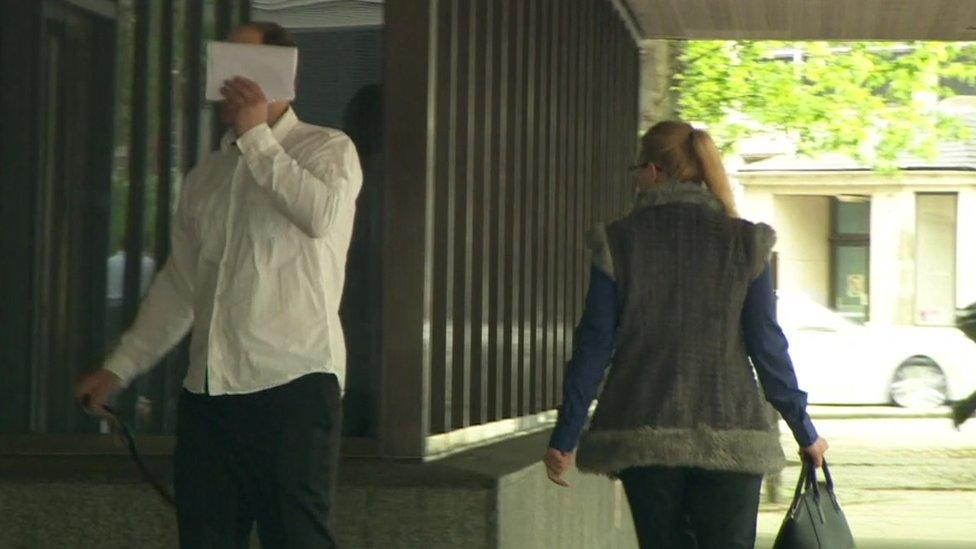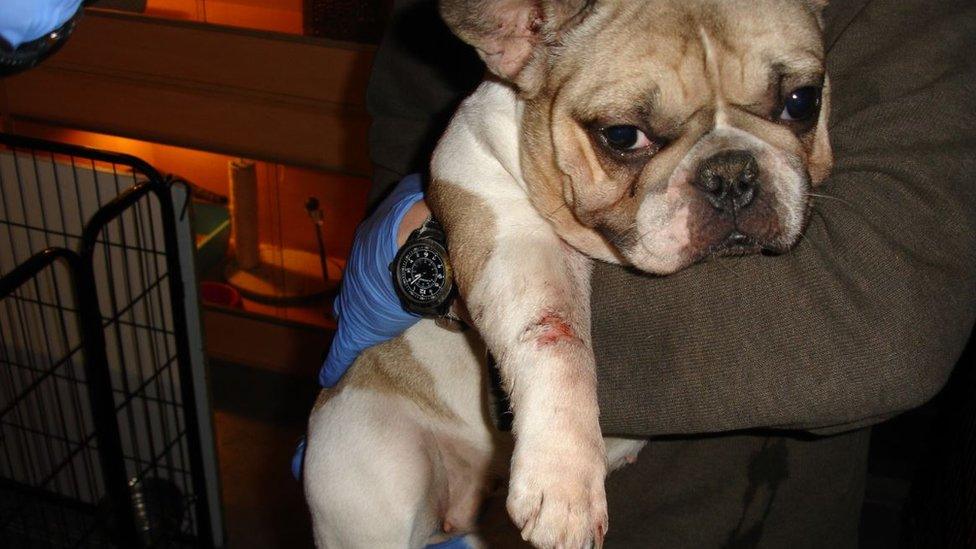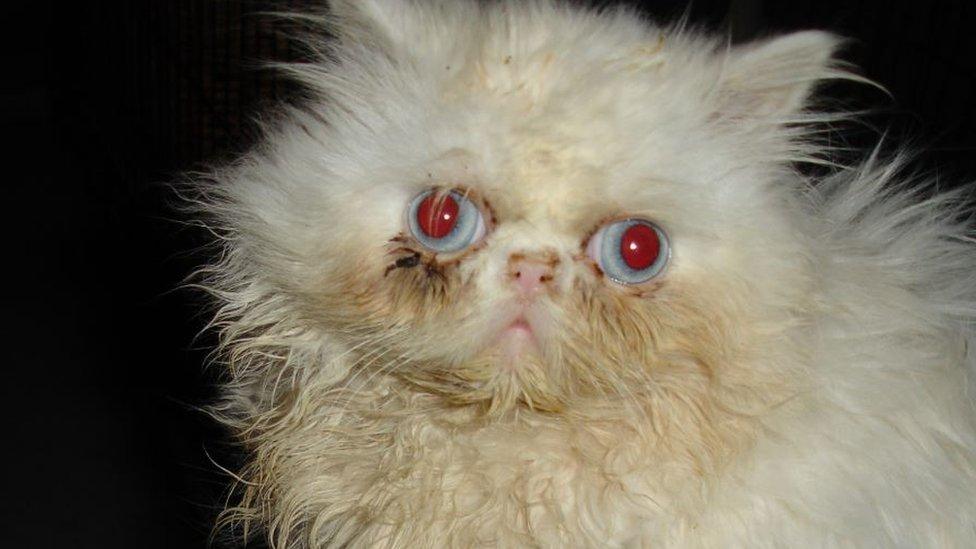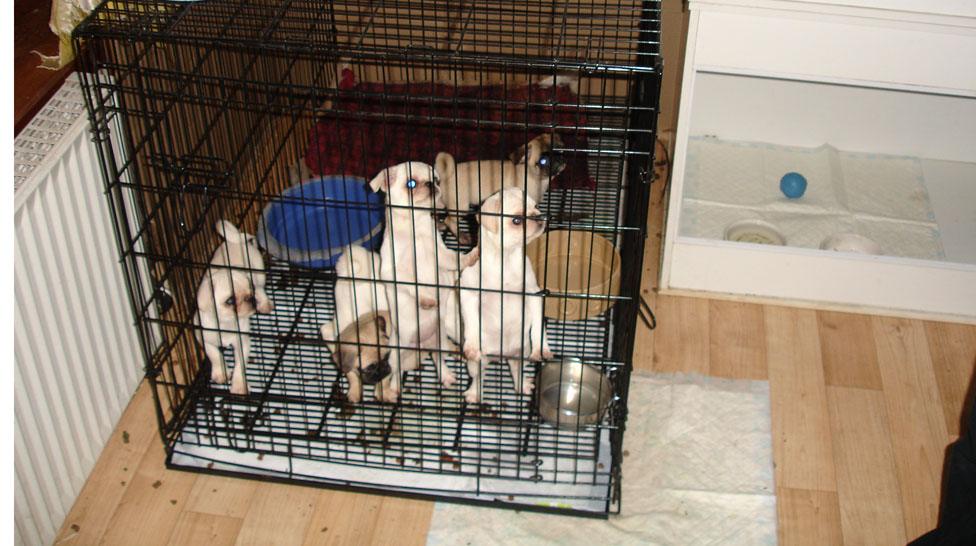Couple illegally import puppies to UK for 'puppy farm'
- Published

Trading standards officers were alerted to the couple after dogs were stopped at ports in Kent twice
A couple have admitted illegally importing puppies to the UK and running a so-called "puppy farm".
Laura Kiseliova, 36, and Raimondas Titas, 35, from Greater Manchester, admitted offences relating to hundreds of dogs and cats.
They include fraud and failing to protect animals from suffering.
Forty one dogs and eight cats found in a raid on a house in Prestwich, Greater Manchester
Manchester Crown Court heard 41 dogs and eight cats were found in a raid at the pair's former home in Prestwich. They are due to be sentenced in July.
Kiseliova and Titas failed to tell buyers the puppies were not bred in the UK and tried to restrict consumer rights, the court heard.
The pair also admitted abusing the pet passport scheme, which is believed to have been used to bring the dogs to the UK as domestic pets from eastern Europe.
The court heard the couple failed to protect animals from suffering and made false insurance claims relating to a dog that died. Dogs were also not given veterinary treatment for injuries.
They were prosecuted after a joint investigation involving Bury and Salford City Council and the RSPCA.

The couple failed to tell buyers the puppies were not bred in the UK
Salford City Council said its trading standards officers were alerted to the couple after dogs were stopped at ports in Kent twice and a vet found a Salford puppy with an eastern European microchip.
People who bought puppies with animal welfare issues also complained to authorities.
The pair pleaded guilty to offences under the Fraud Act, Consumer Protection from Unfair Trading Regulations 2008, the Companies Act 2006 and the Animal Welfare Act.
When the house the couple previously shared in Prestwich was raided in November 2013 RSPCA inspectors found animals including French bulldogs, bulldogs and pugs as well as pedigree cats in a variety of cages, crates and runs.

Eight cats were found in the raid at the pair's former house in Prestwich
The RSPCA's Ian Briggs said: "It was obvious that this duo were dealing and trading in a large number of animals and that many of them were not receiving the appropriate care and veterinary attention they needed.
"Some of the animals were suffering from problems such as conjunctivitis, gastroenteritis or had sore and infected wounds."
Mr Briggs said most of the animals were signed over into RSPCA care and later rehomed.

People who bought puppies with animal welfare issues complained to authorities